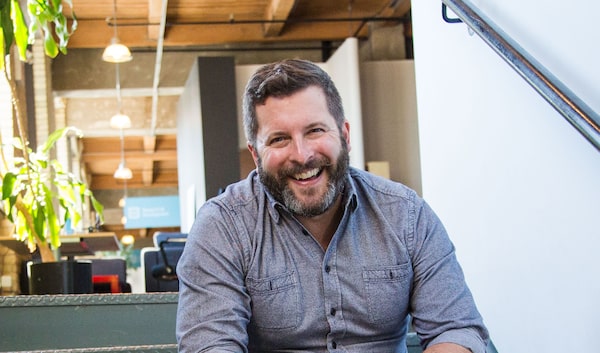A company’s reputation used to be slowly forged, with a strength that grew with the years. Now it is like a model of the Taj Mahal made out of popsicle sticks – painstaking and difficult to construct, but very easy to break. You don’t become an international company without developing some kind of reputation – good or bad – and it’s never been easier for global talent to find out everything about the places they’re considering working at. From Glassdoor reviews to Reddit rants, all but the most intimate inner workings of any company are there for everyone to see. Today, our only choice is to embrace the feedback, and start having conversations that show potential job candidates the type of company you really are.
Transparency is a continuum. On one end is the “because we have to” of quarterly financial filings and press releases; on the other end is a company that is constantly in conversation with its customers and critics – and also with its employees and potential employees.
Real transparency isn’t simply publicly responding to comments left online; it shows up in the voice and tone of every kind of company communication. The first step for us was trying to wean ourselves off the glossy, corporate speak that so many companies use to sound professional. It inevitably becomes a crutch because it’s so good at managing risk: saying something and nothing at the same time. Let it go. Whether you’re talking to potential customers or long-term employees, try to sound like a human.
Existing employees and external candidates – especially the really good ones – are assessing not just your ability to convey information, but if they can trust you with their career. And they are smart enough to read between the lines of press releases, and deep into the online comment sections where you deal with your harshest critics, to figure out what kind of company you lead.
Transparency is style, but it’s also substance. This is a lesson I learned from when I took over as CEO at Rakuten Kobo after joining as part of the founding executive team four years earlier. I got the job just as we entered a period of restructuring. I became the one responsible for serving up tough news to a company that had been raised on a good-news-only diet. There is a reason new startups use the rocket ship as a metaphor. They want to project the ethos of instant acceleration, fast climbs and shooting to the stars – and keeping people pumped up is great for morale. But rockets don’t handle obstacles well. And a team oxygenated on uninterrupted success can come apart when you hit a rough patch. So my first job was to forge new trust – based on transparency. It went something like: “I trust you enough to handle both good news and the bad news without freaking out. You trust me to deliver the unvarnished truth about how we are doing as a company. And we trust each other enough to use bad news as a starting point to help figure out what to do next.” The result is a more resilient company that knows how to weather setbacks and feels equipped with both information and agency, not just at the most senior level of the company, but all the way through.
Keep your work force informed so they feel included, rather than blindsided if unexpected changes are needed. We find that if everyone knows the plan, the reasoning behind it, and the results, they can evaluate our decisions, understand why we made them, and are more likely to be onboard for the next one – even if the plan didn’t quite work out.
We are now leveraging this culture of transparency as we deal with sensitive and complex topics like our strategy for diversity and inclusion. We treat it as a conversation – a dialogue – and not something coming from HR or consultants; rather, it is emerging as a collaborative effort, with very active and engaged employees as continuing contributors to the overall plan. We don’t set ourselves up as leaders who have all the answers, but as people who are trying to be thoughtful, acting in good faith and learning as we go, whose job is to take what we’re hearing and build sustainable programs that actually make a difference and ensuring that difference is visible and measurable. Being a little more humble and open to new ideas helps build trust.
True transparency and substance is not just a nice thing to have. It’s the difference between your next best employee believing in you, or believing they’d be better off working somewhere else.

Michael TamblynSupplied
Michael Tamblyn is the CEO of Rakuten Kobo. He is the leadership lab columnist for September, 2021. This column is part of Globe Careers’ Leadership Lab series, where executives and experts share their views and advice about the world of work. Find all Leadership Lab stories at tgam.ca/leadershiplab and guidelines for how to contribute to the column here.
Stay ahead in your career. We have a weekly Careers newsletter to give you guidance and tips on career management, leadership, business education and more. Sign up today or follow us at @Globe_Careers.